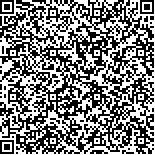附件
|
| 引用本文: | 王心源,李文达,严小华,陆应城,周鑫,李祥,夏林益,唐晓光,梅长青.基于Landsat TM/ETM+数据提取巢湖悬浮泥沙相对浓度的信息与空间分布变化.湖泊科学,2007,19(3):255-260. DOI:10.18307/2007.0305 |
| WANG Xinyuan,LI Wenda,YAN Xiaohua,LU Yingcheng,ZHOU Xin,LI Xiang,XIA Linyi,TANG Xiaoguang,MEI Changqing.Information extraction for suspended sediment in Lake Chaohu and its distribution based on Landsat TM/ETM+ data. J. Lake Sci.2007,19(3):255-260. DOI:10.18307/2007.0305 |
|
| |
|
|
| 本文已被:浏览 10272次 下载 4569次 |

码上扫一扫! |
|
|
| 基于Landsat TM/ETM+数据提取巢湖悬浮泥沙相对浓度的信息与空间分布变化 |
|
王心源1,2, 李文达2,3, 严小华4, 陆应城5, 周鑫2,3, 李祥1,2, 夏林益1,2, 唐晓光6, 梅长青2,3
|
|
1.安徽师范大学国土资源与旅游学院, 芜湖 241000;2.安徽省遥感考古工作站, 芜湖 241000;3.安徽师范大学环境科学学院, 芜湖 241000;4.安徽省巢湖市气象局, 巢湖 238000;5.南京大学国际地球系统科学研究所, 南京 210093;6.安徽省巢湖市环境监测站, 巢湖 238000
|
|
| 摘要: |
| 悬浮泥沙是重要的水质参数之一。应用遥感技术监测悬浮泥沙, 学者们提出了众多的悬浮泥沙遥感的经验模型和推导模型。但在缺乏大气参数或没有足够实测数据的情况下, 这些模式的精度和准确性得不到保证。针对这种情况, 以巢湖为实验区, 对三景的巢湖卫星遥感数据进行了如下的数据处理:(1)利用内部平均相对反射率法进行图像的大气校正, 得到的相对反射率与真实反射率具有相似的波谱特征;(2)对图像进行了水体提取、二值化、掩膜处理, 并通过湖泊泥沙指数SI=(TM2+TM3)/(TM2/TM3)提取了TM数据下的泥沙信息, 得到水体含沙量图;(3)按照本文提出的基于遥感图像的不同浓度等级泥沙的划分依据, 在泥沙指数图上进行密度分割处理, 得到了巢湖泥沙相对浓度分布图。在上述的处理基础上, 利用谱间关系法对巢湖水体进行准确提取;结果表明, 与实测资料对比, 巢湖泥沙相对浓度分布与验证数据一致, 实测数据和SI值相关系数为0.89(置信度水平在0.001), 表明泥沙指数方法可以直观和定量地反映悬浮泥沙相对浓度的分布与变化;研究结果显示, 1987-2000年间, 巢湖高浓度悬浮泥沙范围增大了约1.5倍。通过影像差值图清楚地识别出变化区域, 主要位于西湖的中心、河口入湖区和东湖的南岸, 这种变化的最主要原因是由于各入湖河流携带的大量悬浮泥沙进入水体, 其次是岸坡崩塌物形成的。 |
| 关键词: 悬浮泥沙 泥沙指数 信息提取 巢湖 |
| DOI:10.18307/2007.0305 |
| 分类号: |
| 基金项目:国家自然科学基金(40571162);安徽省自然科学基金(050450401)联合资助 |
|
| Information extraction for suspended sediment in Lake Chaohu and its distribution based on Landsat TM/ETM+ data |
|
WANG Xinyuan1,2, LI Wenda2,3, YAN Xiaohua4, LU Yingcheng5, ZHOU Xin2,3, LI Xiang1,2, XIA Linyi1,2, TANG Xiaoguang6, MEI Changqing2,3
|
|
1.College of Land Resources and Tourism, Anhui Normal University, Wuhu 241000, P. R. China;2.Work Station of Anhui Province for Remote Sensing Archaeology, Wuhu 241000, P. R. China;3.College of Environment Science Anhui Normal University, Wuhu 241000, P. R. China;4.Chaohu City Meteorological Bureau, Chaohu 238000, P. R. China;5.International Institute for Earth System Sciences, Nanjing University, Nanjing 210093 P. R. China;6.Chaohu City Environment Inspection Station, Chaohu 238000, P. R. China
|
| Abstract: |
| To detect suspended sediment by remote sensing technology, researchers have brought up various kinds of experiential or deductive models.The precision and/or accuracy of these models is, more often than not, unable to be assured due to the lack of atmospheric parameters or enough statistics.In this paper, we take Lake Chaohu as an example area, and process the TM data of Lake Chaohu as follows:(1) we get the similar spectrum character between the relative reflection rate and the actual reflection rate by the atmospheric correction which is called the internal average relative reflectance;(2) we get the map of water with different sediment levels by extracting water, creating a map with 0/1 encoding, masking and acquiring a map of SI=(TM2+TM3)/(TM2/TM3);(3)we get the map of suspended sediment relative distribution by applying the density slicing to the map of SI with the criteria for the classification.The results show that:(1)we can get an accurate extraction of water information from Lake Chaohu by the way of considering the relationship between the spectrum;(2)The relative suspended sediment revealed are in accordance with the instrumental data in situ.(3)According to the remote sensing image, the high-level suspended sediment areas had expanded, i.e 1.5 times larger during the past 13 years, indicating certain changes of lakes estuary, lake shoreline and the suspended sediment content.(4)The comprehensive survey shows that the main source of suspended sediment of Lake Chaohu is from the river transportation, and from leftovers caused by the erosion of lakeshore. |
| Key words: Suspended sediment sediment parameter information extraction Lake Chaohu |
|
|
|
|